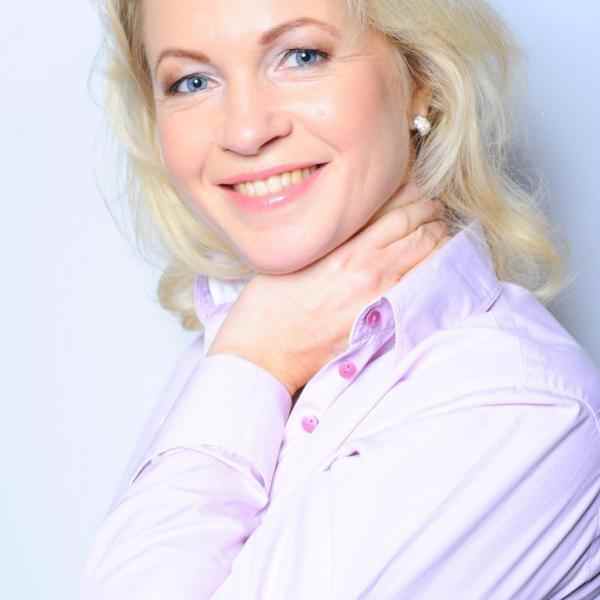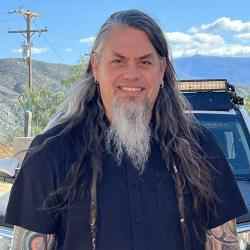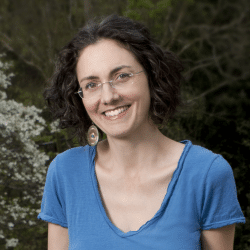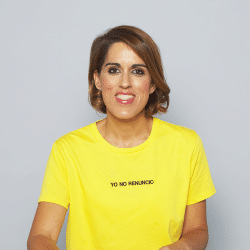Introduction
Heidi Wang is shifting social responses to dementia so that the person with the diagnosis is the focal point for care. Heidi’s system of support positions diagnosis as an opportunity, not an ending.
The New Idea
Heidi is building a new resource in society for people with dementia that combines an emphasis on early diagnosis and prevention, focusing on what remains rather than what they have lost. She has designed a hand-tailored treatment program that draws on a person’s life-long qualities to place them at the center of care. Heidi’s organization, NOEN, has created a caregiving population equipped with skills to increase the quality of life.
Heidi is adding a private layer to the state system and shifting away from end-stage damage control to a focus on health outcomes, quality of life, and early action. Heidi provides a subscription service to allow dementia sufferers, their families, and municipalities to have regular physical activity, classes, and other supports that are designed around the personality, dreams, and possibilities of the person—the opposite of symptoms. Heidi is remodeling existing societal structures to include revitalizing options provided in an accessible way for people with dementia as well as for their families. Her programs are designed around preventing, or slowing, further deterioration, and allow sufferers to remain at home for years longer—saving the health system millions. She utilizes a phone app system to gather data on each participant and assess progress, creating a wealth of information to guide treatment nationally.
NOEN currently delivers assistance and coaching to people in three municipalities all over Norway, working with a non-dividend franchise business model. Heidi also works actively to hire people who have previously been outside the labor market, adding another social dimension to her work.
The Problem
Within the next ten years, the number of elderly people in Norway will double. With this older population comes a dramatic increase in the ailments that arise with aging, particularly dementia. Norway is renowned for a highly functioning and comprehensive healthcare system, yet there is limited support and capacity for the growing numbers of people with dementia and the families and friends that surround them. Heidi estimates that there are over 300 people directly affected by each person who suffers from dementia.
The disease of dementia goes hand in hand with denial. There are roughly 80,000 dementia sufferers in Norway, with 25,000 of those suffering from early stage dementia. However, due to fear, stigma, and slow onset there is a strong incentive to rationalize away symptoms. On average, people suffer from dementia for ten to fifteen years before seeking treatment. As such, the current system is designed for late stage sufferers. More, there is a limited amount of expertise about how to treat cognitive disability that emerges with dementia, but a lot of options in terms of supporting families. As a result, a large percentage of dementia efforts ignore the patient and focus on the family around them.
Being a citizen in Norway—and other Nordic/Scandinavian nations—carries with it an expectation of being taken care of by the state. However, the national Norwegian Dementia Plan focuses on diagnosis but does not provide for training or resources for doctors—there is minimal understanding or commitment to prevention or treatment as would be present with other disease groups.
The Strategy
Heidi learned firsthand the limitations of the Norwegian support system for dementia when her father was diagnosed. As a result, she designed her own systems of support for other families and people diagnosed with dementia. Heidi has created a service to support dementia sufferers and their families and fill the gaps in the health care system, reframing the diagnosis as a potential opportunity rather than an ending.
Heidi’s program places dementia sufferers at the center of care and is designed to maintain their level of function or improve it. When a sufferer begins her program, a staff member works with them and their family to create a map of the person with dementia—their personality, hopes, hobbies, lifestyle, and ability to face challenges. Families’ map who the person was, while the patient maps who they are today: the collective story of a life. This information is fed into the data system as a baseline, and allows the carer to approach the dementia sufferer not as a stranger. Together, they design a twice-weekly at-home activity program, which can include physical exercise, support with household tasks as a “user driven personal assistant,” or other activities of interest. Heidi taps into the market of the undereducated and jobless to staff her services, training them in everything from person-centered care to elderly sexuality, to health promotion.
Understanding of the great burden that caring for someone with dementia can place on those closest to them, Heidi has also created a support system for families. She offers “add-ons,” classes which educate families on cutting edge research on dementia and care, as well as what to expect, how the systems work, how to recognize changes, how to avoid burnout, and how best to approach their new reality. These classes serve as ad-hoc support groups as well, linking various families together to share experience. She also offers legal advice on the rights of patients and families, as well as services that allow families to take much-needed hours off from care, relieving kin of the burden and allowing them to be better long-term carers. Heidi also offers home visits to train families in the best approaches to supporting their family member.
Heidi has also designed a technological tool to assess progress and collect data from participants and their families. NOEN has created an app that allows users to input data on personality changes, physical markers, and other personal information. This allows Heidi to closely monitor the impact of her service, adjust as needed, and collect broader data to create an official standard of measurement. She is working to assess the effects of her services, and standardize mapping to expand to global healthcare services. Working with three leaders in the field, she aims for one database for lifelong individualized service with personal information from the patient, their family, carers, and other providers. Heidi is involved in influencing policy locally and nationally to build this centralized database.
With her non-profit model, a family can purchase a subscription to Heidi’s services for US$12,000 per year. However, to cut costs Heidi has established unique approaches with municipalities, who combine tax deductions and traditional “salaries” paid to family members that together reduce the out-of-pocket cost to $1,000 per year to care for the person at home. This is a remarkable contrast to the cost of institutionalization, which runs US$120,000 per year in Norway. Alternately, municipalities can purchase subscriptions and provide them to citizens for free. Heidi’s program enables participants to extend their time living at home for more than two years. This is a win-win result in that it improves quality of life for participants and saves the health system millions. For example, in a town of 20,000 people, this type of service could mean a saving of approximately US$21 million.
Heidi’s subscription fees fund her operations and she uses grant funding to drive research and development. She does outreach through pensioner social clubs, hospitals, municipalities, and nursing programs. Providing a supplement (or in some cases, a replacement) to government health services through a business model is a new approach in Norway, and rare in the Scandinavian/Nordic regions. Heidi uses a social franchise model and recruits social entrepreneurs to guide franchise expansion, maintaining strict quality control. She describes her work as “slowly growing into a methodology.”
Operational for three years, Heidi has seventeen staff and expanded into seven regions in Norway in 2013, with full national expansion by 2015 and four countries by 2017. A long-term goal is ensuring that her services are legally guaranteed to everyone in Norway diagnosed with dementia. Heidi sees future potential for her model to expand to serve children with mental and physical disabilities.
The Person
When Heidi’s father was diagnosed with dementia, Heidi sought the resources she needed to support his growth and care. An only child left with the full burden of caring for her father, with each phone call she made to government departments and services, she was told that someone, somewhere else, would help. Heidi realized that there was no one able to offer the kind of support and network her family needed, and felt the responsibility fall heavily on her shoulders. In response, she began NOEN—which means “someone” in Norwegian—designed to provide the type of services for other dementia sufferers that were not available for her own family.
From her own experience, Heidi has realized that life crisis, and the deep reflection it prompts, can ignite a powerful perspective and empathy. As a result, she looks for staff who have experienced a life crisis—such as the long-term unemployed and beyond—who have demonstrated an ability to reflect. Heidi trains her staff in reflection and looks for those who “can stand calmly and safely in a difficult situation and can practice equality.”
As a young person, Heidi saw people with Down syndrome in her village ostracized and kept out of sight. People diagnosed with cancer treated it as a death sentence. Today, people with Down syndrome are accepted and normal members of society and people with cancer see possibility in treatment and a future. Heidi sees a tremendous parallel between the perception and treatment of dementia and the changing perception of these conditions over time. She envisions a world where dementia is a condition to be dealt with, rather than a “black hole,” and those who suffer from it are not considered lost and stigmatized.
A long-time entrepreneur, Heidi has always been impatient for change. She worked as a director of a “non-innovative” innovation company in conjunction with a large Swedish international development body. There she designed an entirely new approach to the work with a strong ethical underpinning. The Board destroyed her strategy, and she quit the job, despite ample attempts at rehiring her, when she realized she could no longer believe in the vision and methods.
Heidi then led the design and implementation of research parks across Norway, then moved back to her father’s city when she got the life-changing phone call informing her of his diagnosis. She says she never imagined that moment would begin the greatest use of her entrepreneurial skills. Heidi says the years she spent with her father in the last years of his life were some of the most meaningful of hers. She used the money she inherited after his death to begin her work.




